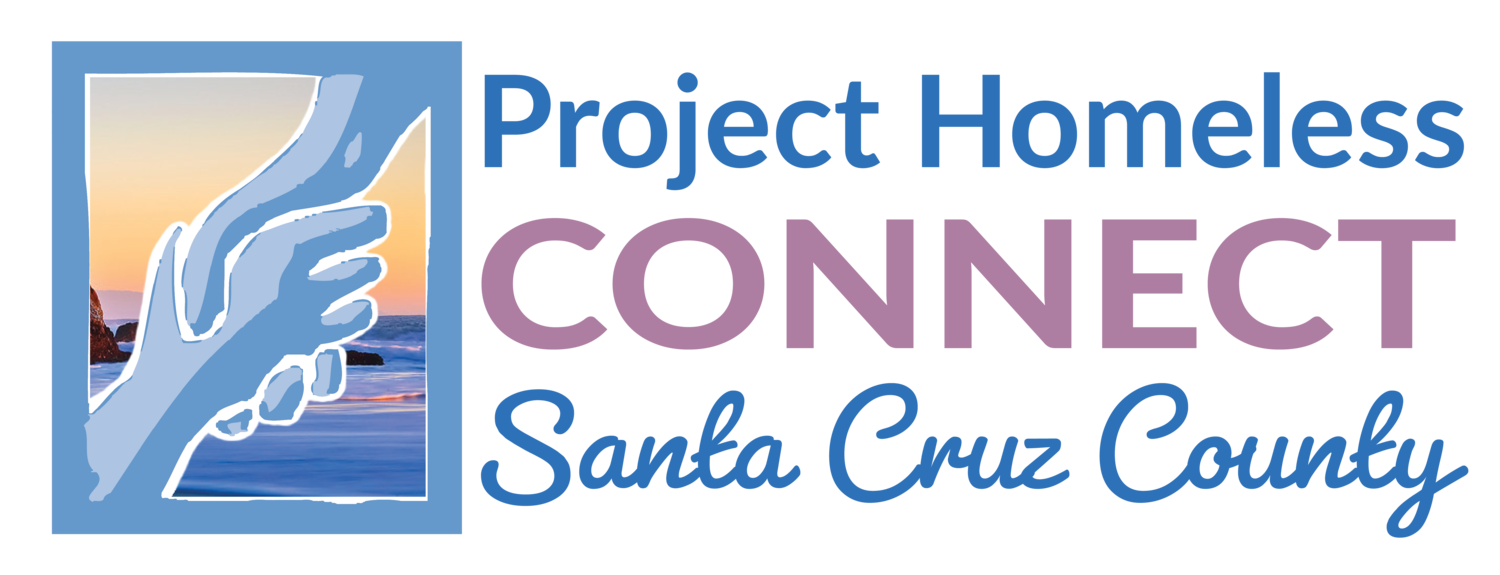Project Homeless Connect provides a cornucopia of services for homeless and low-income people
Tuesday, March 22 dawned cold but cloudless in Santa Cruz. The reprieve from five days of rain was a gift for three homeless men waiting outside the Santa Cruz Civic Auditorium.
One of the men huddled under a blue sleeping bag, beneath a sign announcing the Second Annual Project Homeless Connect. “There’s going to be a long line,” he replied when asked why he was there three hours before the doors opened.
Inside the auditorium, dozens of volunteers were busy hanging posters above 40 booths that offered free services for homeless people, including help with employment, housing, driver’s licenses, and medical/dental care. The volunteers—representing local government agencies, nonprofits, businesses, and churches—totaled more than 440 by the day’s end. The volunteer pool included 150 professional service providers; others served as escorts.
“Clients requested the specific services they needed, and then met the volunteers who would escort them to the service areas in the auditorium,” says Megan Carlson of the Homeless Services Center. She is also a member of PHC’s seven-person steering committee, which is chaired by Santa Cruz Vice Mayor Don Lane. “The volunteers all got a chance to look people in the eye, meet someone new, make real connections, and hear people’s stories,” Carlson adds.
One escort traveled in a van with her client to the DMV, where two lanes were reserved for PHC clients. The agency helped 119 people obtain IDs throughout the day.
The Homeless Persons Health Project (HPHP) and other clinics coordinated their efforts to provide a triage and referral approach to serve as many clients as possible at PHC, which was attended by more than 900 people—less than a quarter of the county’s estimated homeless population, according to the Santa Cruz County Homeless Census and Survey. Nursing students provided blood pressure and diabetes screenings, and sent serious medical cases to HPHP, the Women’s Health Center, and Westside Planned Parenthood, where appointments were reserved for PHC clients.
Santa Cruz is one of 220 cities that provide a one-day cornucopia of free services. PHC began in San Francisco in 2004, when then-mayor Gavin Newsome challenged county employees to design better services for homeless people.
Organizers say that clustering services in one place is a cost-effective way to meet homeless people’s needs. “The idea is to help them to change their circumstances and bring them into one place,” says Matt Nathanson, public health nurse at HPHP. “The problem can be just getting from Point A to Point B, and then you get there, and they say, ‘You need this paper,’ and they send you to Point C.’ That can be very demoralizing.”
Paul O’Brien, of the Homeless Action Project, says that the majority of attendees are newly homeless. “Most people stay homeless less than a year, including families,” he says. “Most people are very motivated to get out of that situation. This is a great place to do that.”
Robert Cochran is a good example of this. In 2010, he attended PHC as a homeless person seeking services; this year, he returned as a volunteer. “Last year, I came here and got my ID, got my social security card, got a job with Homeless Garden Project, and a really nice backpack,” Cochran says. “I tell everybody [that] this place can save lives. It’s really good to come here and help other people that are in the same situation I was in.”
Among the services provided were haircuts from hairdressers including Michelle Stroming, a local Great Clips employee. “I love to do things for the community,” she said as she gave a haircut to Kevin Husted, an out-of-work commercial contractor. “Commercial’s been hit harder than residential,” Husted said. “I lost everything. Couple years ago, I had three homes. [Now], I couch surf.” After the haircut, he planned to visit the vision care booth— and then enjoy the free spaghetti lunch.
In the Civic parking lot, volunteers and clients ate together at long tables while a band played amidst booths with veterinary services, bike repair, giveaways of hygiene supplies and groceries, and foot-washing. Volunteers ran a story project to record stories about local homelessness, which will be posted on the event website, phc-santacruz.org.
“(Homelessness) is obviously not a problem you solve in a day,” says Nathanson. “Things like this are great, but we have to figure out how to sustain this energy throughout the year, if we want to get to a place where everybody has a roof over their head, food to eat, access to healthcare.”
“I feel kind of bad about helping all these people and then sending them back to where they were before,” admitted Porter Wesson, age 14, who volunteered with his brother Baxter and their mom, Lynn. Eleven-year-old Baxter agreed: “You wish you could do more.”
